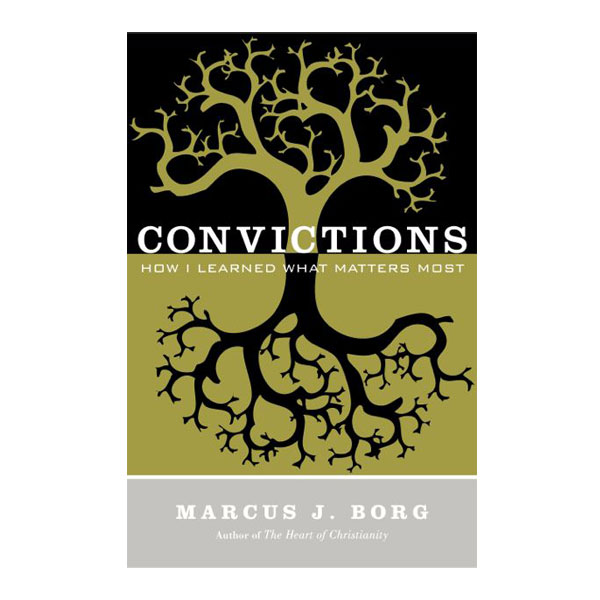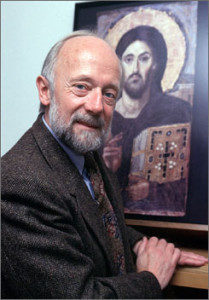Where to buy this book
How I Learned What Matters Most
‘Convictions’ Takes Readers on a Journey of Faith 70 Years in the Making
For the past 50 years, renowned scholar Marcus J. Borg has shared his passion for modern Christianity through teaching, preaching, reading, and writing to a diverse array of communities. Now, at the age of 70, he shares a memoir of conversions, convictions, and more remarkable moments from his long-standing commitment to faith.
His book, Convictions: How I Learned What Matters Most, takes readers on a journey through his experience with modern Christianity.
An Unconventional Journey
Convictions break down modern Christianity in America into five types:
-
Conservative
-
Conventional
-
Uncertain
-
Former
-
Progressive
Borg places himself in the last category, always teaching about Jesus, the Bible, faith, and the modern world from the mindset of a Progressive Christian. He started his journey of faith as a conventional Christian. In Chapter Two, Faith is a Journey, Borg gives a glimpse into his childhood and college years. Readers walk alongside Borg through the major conversions and the shifts that formulated his view on faith and life.
Relevant and Applicable for Modern Christianity
Borg addresses many of the current questions surrounding modern Christianity by tackling the question of political divisiveness in Chapter Eight. The Bible and other lessons of faith have been used frequently in American politics.
To Borg, the Bible is political and is backed with examples from the Christian faith, namely God’s passion for justice and the poor. He encourages the Christian call to practice peace and nonviolence (Chapter 10). This is in direct contrast to the society followers of modern Christianity find themselves in – one shaped by violence, war, punishment, and social justice issues.
In connection with the political questions, Borg states “doing justice, being kind, and walking with God all go together.”
True vs. Literally True
In discussing the nuances between different sections of modern Christianity, Borg discusses the viewpoints that lead to different classifications. Conservative Christians tend to view the Bible as literal.
Borg, and fellow Progressive Christians believe the Bible can be true without being literally true. This provides more flexibility in understanding the story of creation and ultimately finds it more applicable to the world of today.
Rather than view the entire Bible as the measurement tool for all followers of modern Christianity, Borg places the norm on the example of Jesus. Jesus is the standard for other Christians, the Bible, and other aspects of the faith.
This gives the grace necessary to recognize the Scripture is wrong on certain lessons, such as violence, slavery, and patriarchy. The Bible is seen as the “foundational document, but it is not the inerrant and infallible revelation of God.”
What Is Modern Christianity All About?
The final chapter delves into three basic ways to honor God: through prayer, worship and reading the Bible to open ourselves to God.
Ultimately, a long, enriched life of faith and learning leads Borg to answer this question with the response, “It’s about loving God and loving what God loves. It’s about becoming passionate about God and participating in God’s passion for a different kind of world, here and now.”
The tie-ins to today’s world make Convictions a tale worth reading for believers in modern Christianity, and it is no surprise many find a reason to buy this book.







